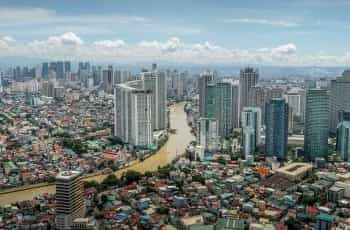Southeast Asia Can Harness the Power of Chinese Gambling
Gambling in China has been illegal for a long while, except of course in the city of Macau. The result is that offshore gambling centers around Southeast Asia have popped up frequently, geared towards servicing the demand for the gambling games that wealthy Chinese customers yearn for. Cambodia and the Philippines have both become heavily involved in the industry, with these two countries generating vast proportions of their annual GDP directly from the practice. The problem is, many of these operations have criminal elements behind them – and a long-overdue international crackdown from China may very well be on the cards.

Southeast Asia has become a hotbed for the growth of the offshore Chinese gambling activities. Entrepreneurs are flocking into the country in order to get a piece of the profits. It’s practice, though, comes with a range of undesirable consequences. ©StockSnap/Pixabay
The push factor that’s contributing to the growth of these sectors is Beijing’s stimulus in these regions, as part of its Belt and Road Initiative. With this policy comes large sums of investment in the infrastructure of the surrounding countries from China. By providing the capital to build up the peripheral regions from China, Beijing is building a firm pillar of control between its own political demands and the socio-economics of its neighbors . Within the large construction projects are of course allocations for the development of gaming operation hubs.
But what all may seem good at first is not always so. The influx of Chinese capital into Cambodia at first would have seemed like a vital lifeline for a cash-strapped government that needed to stimulate foreign investment. But, with this cash-inflow so to came a lot of Chinese nationals, around 138,000 just in 2019 alone. The vast influx has led to a breakdown in public order at the locale level, a sharp increase in violent crime has also been demonstrated since the wave began.
The Philippines has experienced a similar story, and can recount its own acceptance of Chinese wealth – closely followed by an influx of Chinese nationals, then a sharp increase in social disorder. The trade-offs being made here by the political decision makers is clear, but the damage being sown is not so visible. Gambling-related conflicts are the result of a power struggle between local entrepreneurs, and Chinese migrants seeking to muscle their way into a lucrative industry in its infancy.
Cambodia Rejects, Philippines Accepts
The two countries aforementioned both recognized the problem that is growing domestically as a result of their policies to allow the influx of Chinese gambling entrepreneurs to go unchecked. However, the conclusions draw by both have been widely different. Cambodia refuses to allow the chaos to continue, and despite the benefits that this foreign investment will ultimately bring to the economy of the country, the social impact has been too much for them. Therefore Cambodia has decided now to halt the granting of new licenses, and the renewal of existing licenses. A move that will certainly cause foreign investment to significantly fall.
The Philippines president continues to support the influx of Chinese offshore gaming industry operatives due to the benefits it brings his economy, and the jobs that this flow of business will create. In a stark recognition of the realness of the current situation, Duterte even stated that his country was completely reliant on the fees and taxes that earned from the POGOs.
There are a number of solutions being considered to stabilize the current situation. From a socio-economic perspective, implementing an outright ban would not be the best idea. Instead the country should find a compromise – between allowing business to continue, but implementing enough regulation to stifle the growth in the crime rates. Assigning more law enforcement officers, tightening the control of immigration screening, and getting the industry to adopt a higher standard of ethics in its operation should be a main priority.
In summary, both the Filipino and Cambodian governments have recognized that there is a need to continue the activity of China’s offshore gaming activities, but this needs to be restricted. Rather than absolutely banning the process of allowing Asian entities to offer gambling services, these countries need to find a viable compromise.



